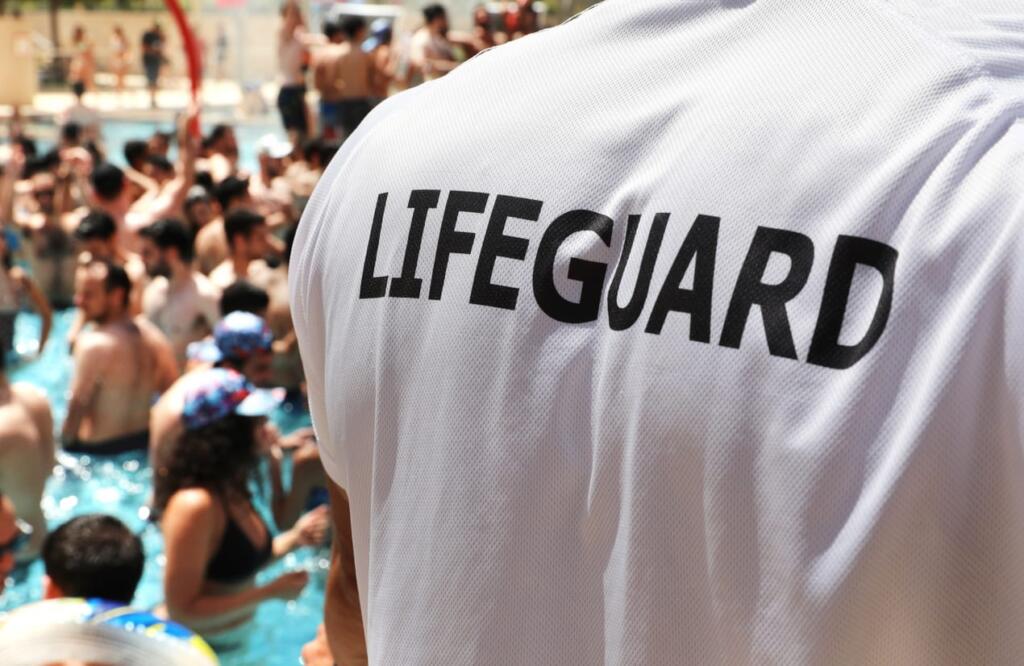
Lifeguards play an integral role in ensuring the safety of beach and pool goers trying to stave off the summer heat. Their vigilance is admirable and should be acknowledged, but it’s equally important that lifeguards recognize the risks to their own safety and well-being.
You may wonder what the basis for this assumption is. The answer lies in increased lifeguard cancer rates. Studies reveal that lifeguards are at an elevated risk of developing cancers related to sun exposure in their occupation. Alarmingly, very few are seeking appropriate medical attention to address this rising concern.
Get serious about your health and schedule your preventative health scan today!
What is the cancer rate for lifeguards?
Medical professionals everywhere have long preached about the risks of prolonged and frequent sun exposure. One study conducted on 200 current and former Florida lifeguards discovered that nearly 40% have contracted some form of skin cancer, with conditions ranging from mild to malignant tumors. In a subsequent study it was found that risks of lifeguard skin cancer were moderate or high for 71.6% of those who participated.
These statistics show the need for more proactive interventions to reduce lifeguard skin cancer rates. The risks associated with this occupation can be reduced significantly with the proper preventative health plan in place as well as regular health screenings for cancer and other diseases. With the technology available today, there is no excuse for such a high lifeguard cancer rate to continue.
Are lifeguards at higher risk for cancer?
Based on the research and the data, it is safe to say that lifeguards are indeed at an increased risk for cancer. Hazardous conditions related to being a lifeguard put these individuals at direct risk for developing skin cancer. Lifeguards are exposed in excess to ultraviolet rays from the sun on a regular basis for extended periods of time, making them increasingly vulnerable to the development of skin cancer.
Why do lifeguards get cancer?
Understanding the cause of the increased lifeguard cancer rate can aid in its reduction and prevention. Lifeguards develop skin cancer due to their consistent exposure to the sun’s ultraviolet rays. The sun is radiation, and this radiation exposure is directly linked to a number of cancers, one being melanoma, a potentially fatal cancer.
The intense and consistent sun exposure combined with little effort for cancer prevention creates an environment for skin cancer to thrive. Lifeguards also receive higher rates of cancer-causing sun exposure due to the reflection of damaging rays from the nearby water. The prevalence of proactive interventions and risk reduction strategies should be addressed to ensure the safety of lifeguards everywhere.
Related: How Dangerous Are Tanning Beds?
How can you protect yourself from cancer due to your occupation as a lifeguard?
Working in an occupation where sun exposure is frequent and prolonged, it can be difficult to completely eliminate the risk of skin cancer due to this occupational hazard. However, there are steps you can take to reduce your risk:
- Stay in the shade when possible, especially during intense sun hours
- Wear a hat with a wide brim to block the sun from your face, head, ears, and neck
- Generously apply a broad-spectrum sunscreen with a sun protection factor (SPF) of 30 or higher, and reapply frequently
- When possible, wear clothing that blocks direct sunlight from the skin
- Do a visual examination of your skin monthly from head to toe
- Seek medical help to create a preventative health plan
- Schedule regular health screenings for cancer and other diseases
Stay on top of your health
The importance of taking the appropriate steps to protect your health and well-being cannot be overstated. Every day you neglect to take appropriate action regarding health you are more at risk of developing complications. Early cancer detection and screenings for other diseases have the potential to catch illness early, allowing for more effective treatments.
Be kind to your body and book your non-invasive CT scan!
References:
Cancer rate high in poll of lifeguards. (2005).
Gies, P., et al. (2013). Measured Occupational Solar UVR Exposures of Lifeguards in Pool Settings.

